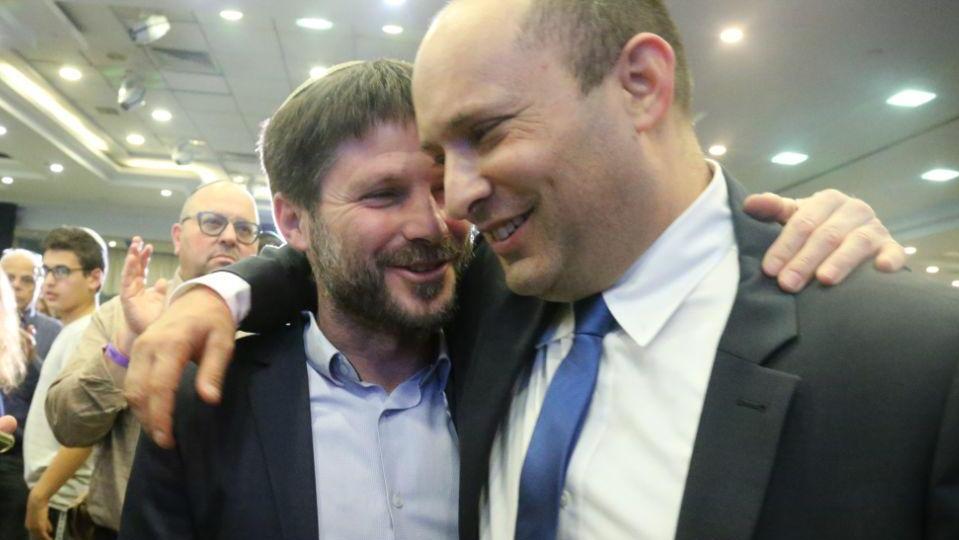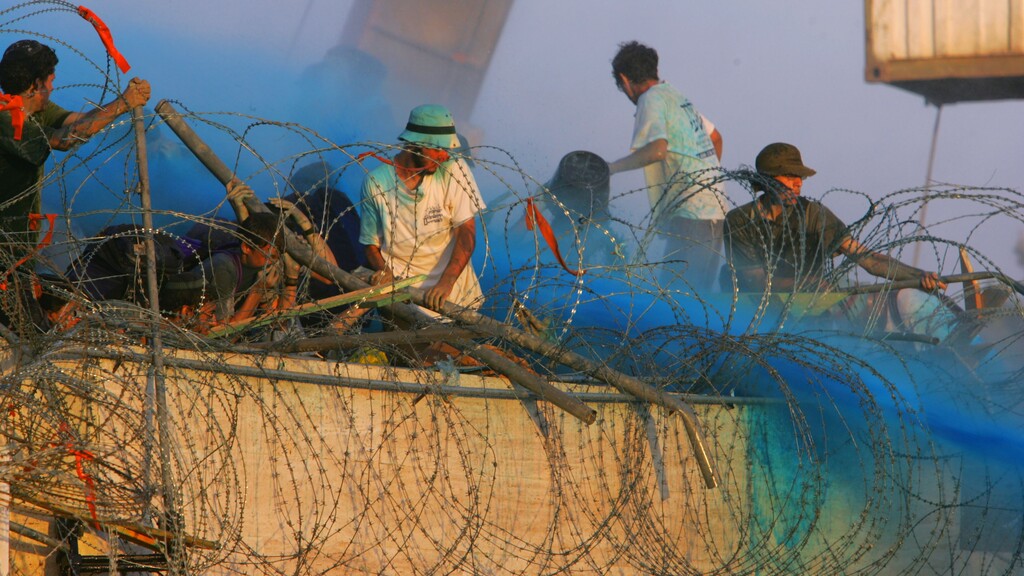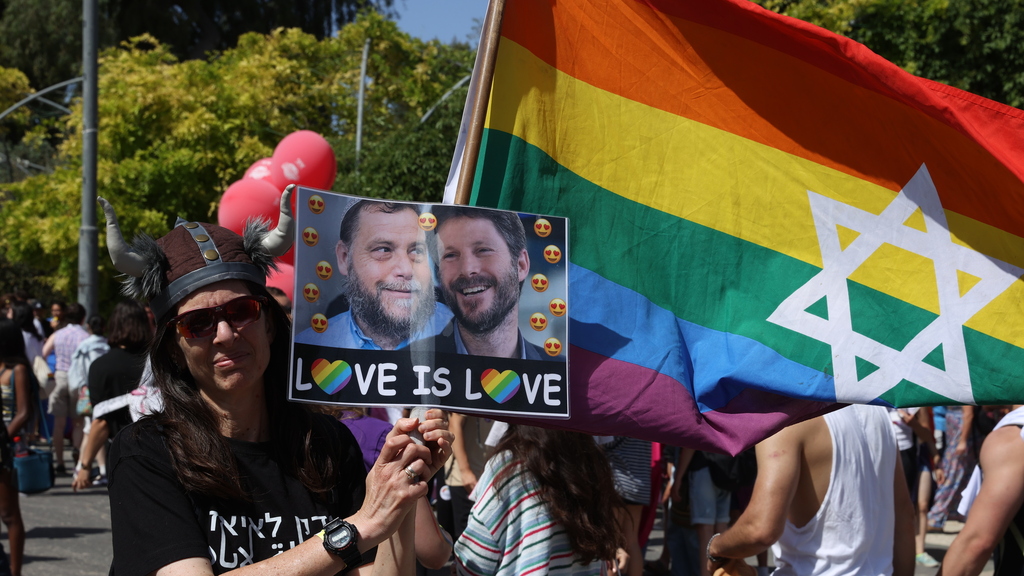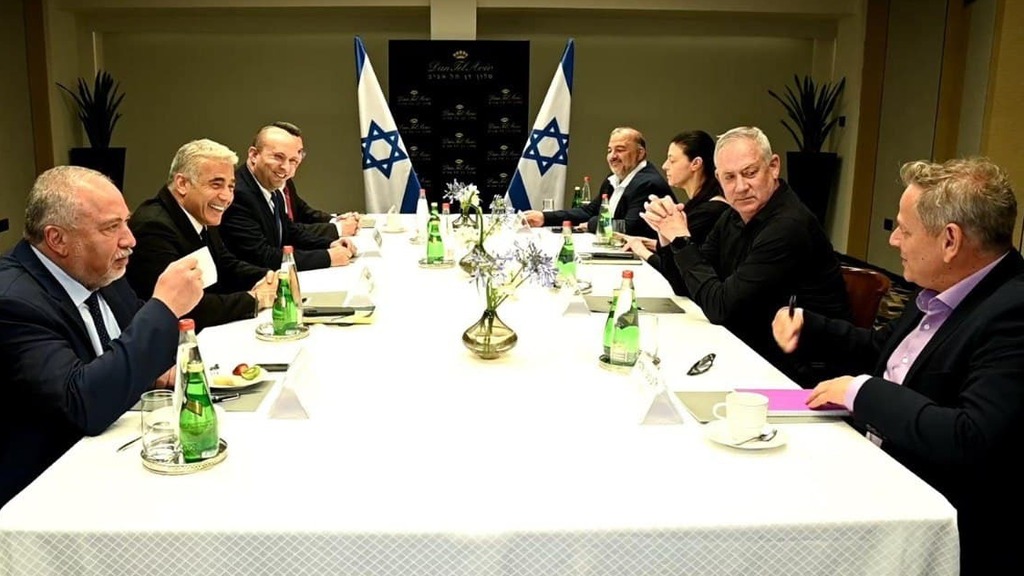Getting your Trinity Audio player ready...
Every child in the religious Zionist community receives education based on the holy triangle of the land of Israel, the Torah of Israel and the people of Israel.
This isosceles triangle contains a whole world of values, which have in recent years slowly begun to change.
4 View gallery


Prime Minister-designate Naftali Bennett, right, with former ally and Religious Zionist leader Bezalel Smotrich
(Photo: Moti Kimchi)
For years, the Land of Israel was the triangle’s central vertex. The biggest fear gripping religious Zionists was surrendering territory, something that was only exacerbated by the 2005 disengagement, when Israel evacuated all its settlements in Gaza.
And although the Gaza evacuation was a searing wound that would not heal, it did push the settler community to expand inside Israel in the form of such groups as Torah Nucleus that move into needy Jewish communities. Thus began the young religious Zionists to embed themselves into policy making, communication and government.
The components of the triangle have again changed.
The land of Israel, while still undoubtedly an important subject, is no longer the main issue occupying religious Zionism.
Most of the Israeli public holds right-wing positions when it comes to issues of security and politics, and the West Bank is positively brimming with settlements that will most likely never be evacuated. These once solitary localities even became somewhat bourgeoisie, a testament to the influence of the outside world.
It is the tenets of “Torah of Israel” and “people of Israel” that now taken center stage.
4 View gallery


Settlers clashing with IDF soldiers during the 2005 disengagement plan from Gaza
(Photo: Getty Images)
The schools of the ultra-Orthodox nationalists, who form part of the religious Zionist community but with a greater inclination toward Haredi ideology, have over the years created an entire worldview that strictly opposes what they call “post-modernism.”
Anything that seeks to change the perception of family life and advance gender equality and equal treatment of non-Jews is perceived as an existential threat to the very foundations on which the Jewish state was built.
This very narrow-minded new interpretation of the "Torah of Israel" dictates that the "People of Israel" must be saved from foreign influence.
It is a fight fought on countless front: in the battle to prevent the draft of religious girls into the military, the war on privatization of rabbinical services, and the ludicrous fight against the program to distribute free children's books in schools.
These struggles serve to promote the conspiracy that the Education Ministry and the IDF are controlled by a shadowy and progressive deep state cabal, whose members use Christian money to control and alter people’s consciousness in order to undermine and erase Israel’s Jewish identity.
And while it may sound somewhat apocalyptic, it is the actual belief of some of the most prominent rabbinical figures in the religious sector today.
They believe that the main culprits are the left-wingers. Not those who want to evacuate settlements in order for a Palestinian state to arise, but those who march in the Gay Pride Parade and believe in equality for men and women.
And while the Har Hamor Yeshiva in Jerusalem is the most extreme in its views on these issues, there are others who follow the same teachings and seek to introduce these ideas into the national education and political systems.
The vast majority of religious Zionists are much more liberal than this and as such send their children to pre-military yeshivas and youth movements. But it is in these
very places that such extremely conservative worldviews are often introduced.
4 View gallery


A woman at the recent Jerusalem Gay Pride Parade holds an image of extreme right-wingers Bentzi Gopstein and Bezalel Smotrich that depicts them as lovers
(Photo: Amit Shabi)
Parents are promised academic excellence, even as conservative Torah ideology is stealthily pumped into their children's heads.
The tipping point came during the recent political turmoil. On one side stood Yamina leader Naftali Bennett - a kippa wearer, staunch right-winger and now prime minister-designate.
On the other side stood Bezalel Smotrich and Itamar Ben-Gvir, considered too extreme for religious Zionists but who today head a party that appropriated the religious Zionist name.
Their vehement opposition to a unity government with those they deem left-wingers - even if they don’t seek to implement their political ideology - is part of a sharp ideological difference.
These extremists believe in unity in the Bnei Akiva religious Zionist youth movement, but not when it comes to government.
4 View gallery


The heads of the parties of the new broad coalition, including unmarried feminist Merav Michaeli, proud gay man Nitzan Horowitz and Muslim politician Mansour Abbas
(Photo: Raanan Cohen)
For these extremists, sitting in the same government as Labor leader Merav Michaeli, Meretz head Nitzan Horowitz or Ra’am chair Mansour Abbas is tantamount to issuing kosher certification to a feminist woman without children, a gay man who will fight for the rights of his community and to an Arab who wants to be treated as an equal citizen.
For them, the fight is no longer about land. They believe that today they must fight for what they see as the very soul of the Jewish people.

